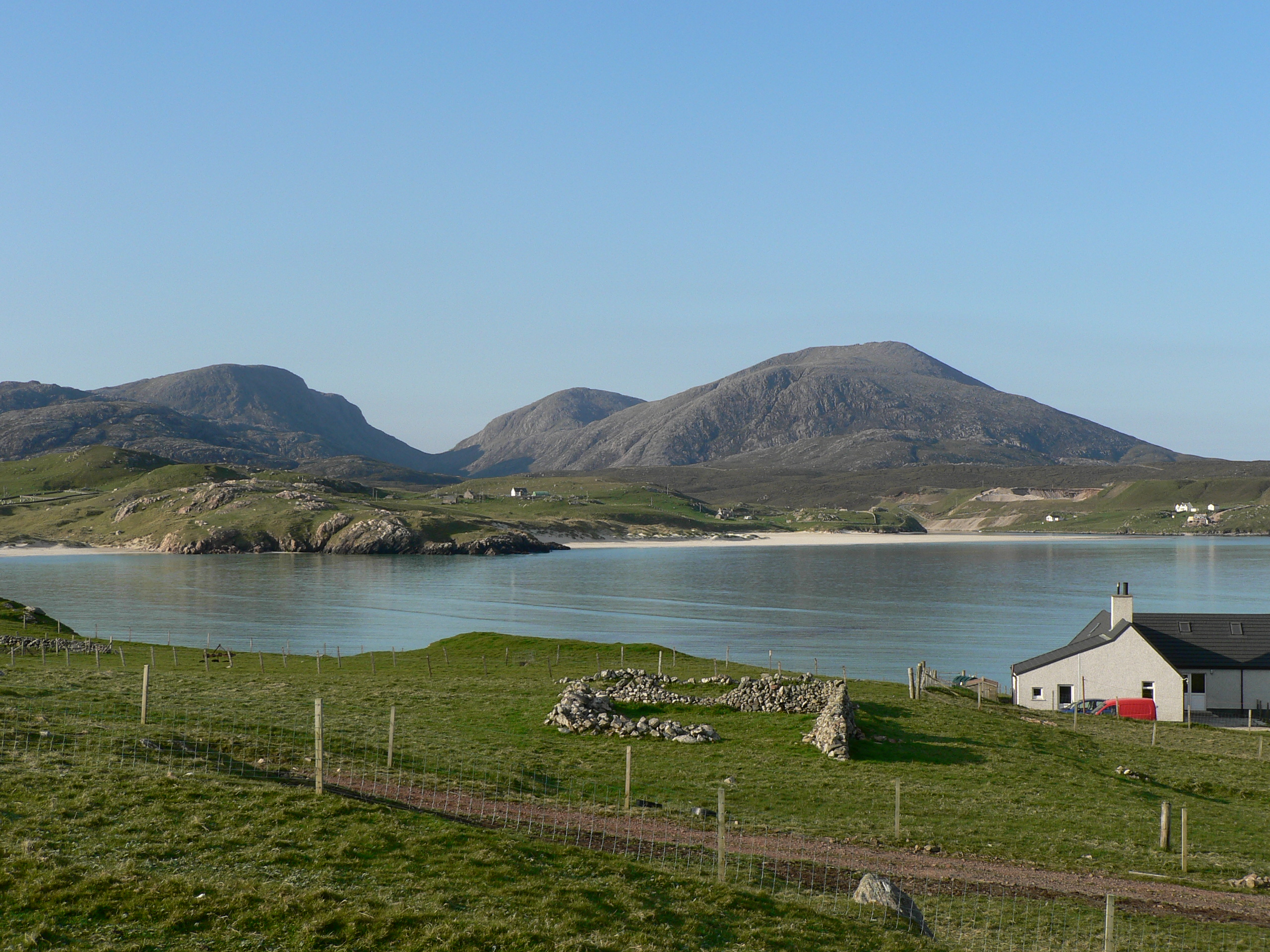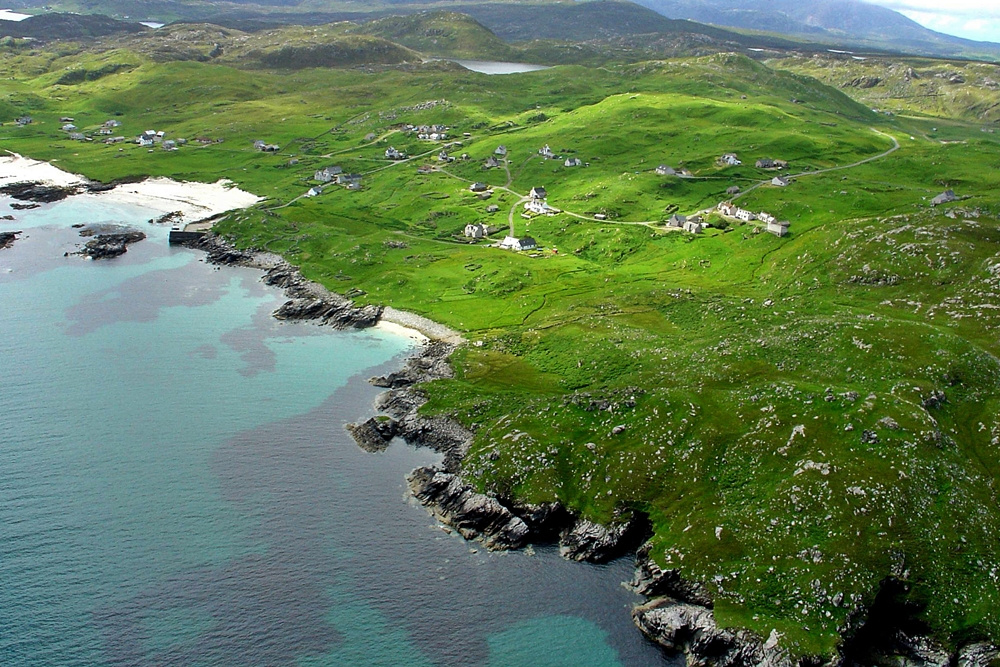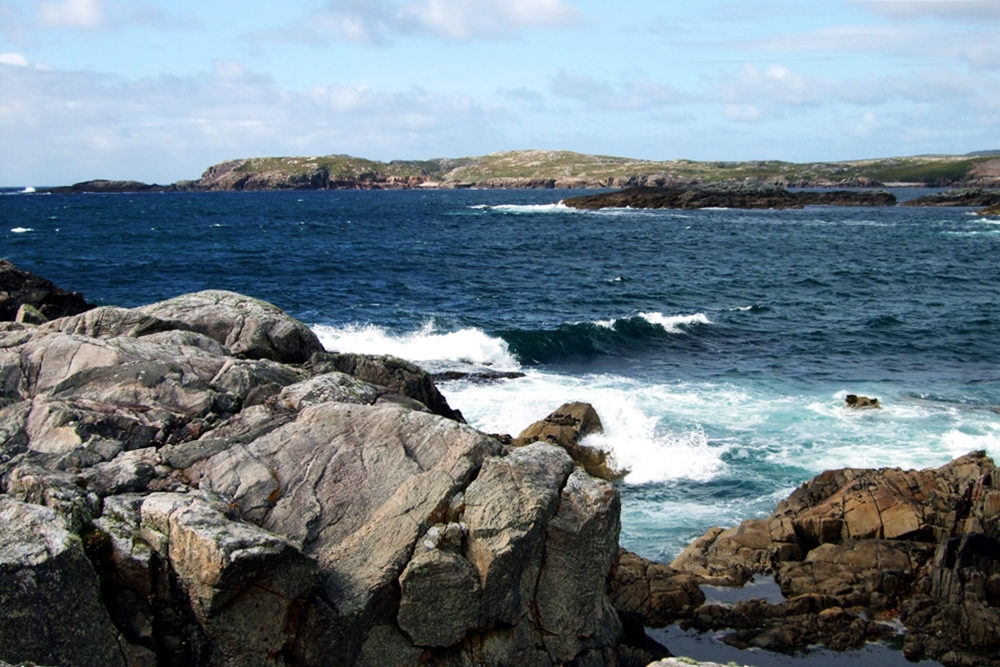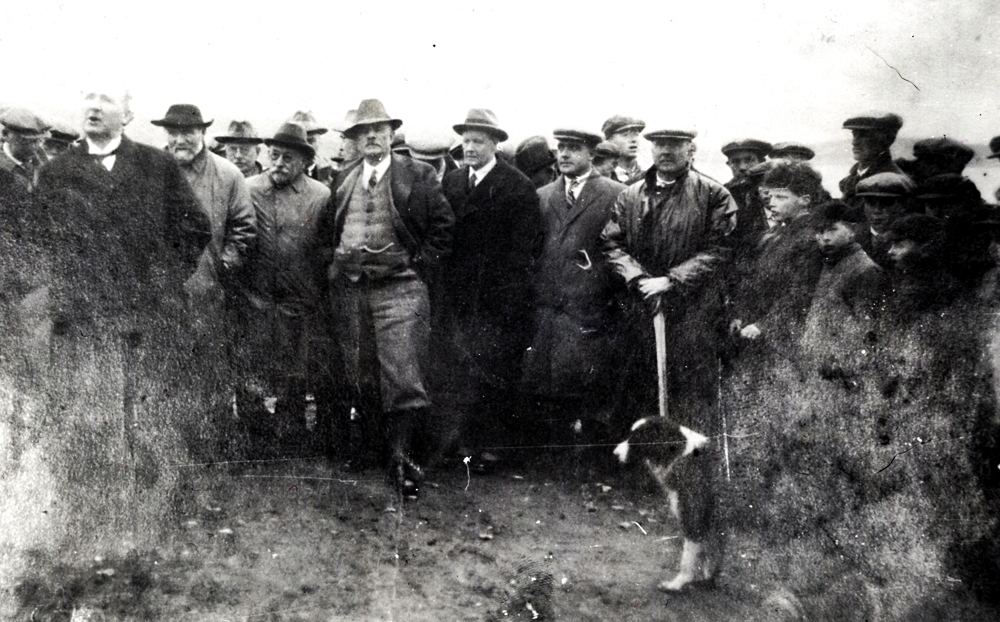Author: admin (page 26)
Uig Museum makes the shortlist!
Lochcroistean School, 1958
An Dotair Ruadh
(picture of Valtos and Kneep by Chris Murray)
An Dotair Ruadh, Donald Macaulay, seventh in line from Dòmhnall Càm, was the son of Dòmhnall mac Sheorais, the tacksman of Linshader who himself became something of a legend because of his size and strength. His son has come down in tradition as equally renowned, but for being something of a chancer. He was a brother of Lily Macaulay who married Rev Robert Finlayson of Lochs, and it seems was also a cousin of Mac an t-Sronaich.
William Matheson reports that he was a small man in black with a red beard and a fiery temper. He studied medicine at Aberdeen but never practiced formally, apparently because he had been expected to succeed Dr Miller in Stornoway and when he was disappointed, he turned to farming instead.
He took a series of tacks, and seems to have made a practice of withholding the rent because of some alleged failure of the proprietor, and going to court over it.
Reluctance over Summer Time
Katie Ann Morrison, Ungeshader
A Hundred Years On, or Lewis in the Age of Stubble
Cèilidh aig an Àirigh: Àirigh Taoireag and Àirigh Smuddaidh, 26 July
New Pictures from 36 Cliff
Long an Iaruinn: the Ship of Iron
Dolly Doctor, in Tales and Traditions, tells of the wreck of a ship at Carnish in 1775. In the picture Sgeir an Iaruinn is the small island in the middle of the picture, with Shielibhig in the distance on the far left.
All night the people round Uig Bay had listened to the cries of woe and frightful screaming from the crew of the ship gone aground, as piece after piece broke away from the ship and the crew were being washed overboard; but they could do nothing to help them, for no boat could live in those awful waves and the night was inky black. She was a big ship, and had come into Camas Uig the evening before, seeking shelter in the lea of Sgeir Sheilibhig, putting out two anchors for futher safety. The wind began to get stronger as night came on, and by midnight it was blowing a howling gale right into Uig Bay. She began to drag the two anchors until she scudded before it, gaining momentum all the time, until she struck on a sunken bogha with such for that she gave off a loud clang as of metal being struck, so that all the houses in Carnish and Crowlista heard the noise. This was a mortal blow for it ripped part of her timbers off, then she scurried with renewed force onto the sharp fangs of the skerry at Carnish Point, where the mighty billows kept on tearing her asunder, but she was well out from the land and no human being could get to her on such a night of doom.
Morsgail Lodge
The Sporting Estates of the Outer Hebrides, Past and Present
Intolerable Postal Facilities, 1920
Stornoway Gazette
Friday, 16 January 1920
WEST UIG MAIL SERVICE
At a meeting held in Crowlista Public School, Miavaig, Lewis, on Tuesday, 30th December 1919 presided over by Col. Lindsay, Morsgail Lodge,Lord Leverhulme’s representative here, and attended by representatives from all the townships of West Uig, it was resolved to lay before the Postmaster General, their grievances and complaints with regard to the very unsatisfactory state of the mail service to and from Miavaig and Callanish.
This is a grievance of long standing, but during the war inconveniences were borne without complaint. Now that the war is over, postal facilities should be improving, but instead, they are actually getting worse, and becoming intolerable.
In November last, the motor launch, that carried the mails between Callanish and Miavaig (being far too small and inequal to the difficulties and dangers of that passage) was disabled and cast upon a desert island, where fortunately, the men, at great risk and peril of life, were able to save themselves, but some of the mails were badly damaged. Since then the conveyance of the mails is dependant on the occasional passage which a sailing boat can effect across the dangerous sound. Owing to rough weather, with contrary winds, tides, etc. it is often unable to make the crossing, consequently great inconvenience, dissatisfaction, delays and losses are caused.
Babag and Peggy Ann at the Peats
JD in the Glen
Rev Maclennan’s Speech on TB Day
Pic: some of the worthies of Uig and Stornoway at the ceremony.
TB Macaulay, president of the Sun Life Assurance Company of Montreal and descendent of the Macaulays of Uig, visited Lewis in the summer of 1929 to open the new Municipal Buildings in Stornoway (replacing those destroyed in the fire of 1918) and to continue various development projects he had already begun, including the co-operative Macaulay Farm at Arnish. They arrived on 15 June and stayed at Lews Castle as guests of the community, hosted by the Provost Louis Bain and his wife; on their first night a huge bonfire was lit on Goat Island to salute them. They spent three weeks on the island, and on 18 June visited Uig on what became known as an Latha TB – TB Day.
The Gazette reported that sixty motor cars came out from Stornoway to join most of the population of Uig, and parked on the high flats above Valtos – being unable to get down the steep hill to the village. A platform had been erected, with flags and a piper, and an outdoor ceremony took place. TB was greeted by the four oldest men in the village, led by Hector Matheson (97). After a welcome from Murdo Maclean (of Uig and Stornoway), Rev Malcolm Maclennan presented TB with an “illuminated address” and made the following speech.
A Dhaoin’ Uaisil Uig! (Noblemen of Uig. Let me so address you in terms used of old by outsiders, when speaking of your ancestors.) We assemble on this familiar spot to-day to welcome a gentleman only a few ‘Knees’ (as our Gaelic idiom has it) removed from one whose hearth glowed and whose home flourished, attached to this soil – Mr T. B. Macaulay, of Montreal. (Applause.) For the honour of this day’s proceedings we are indebted to the untiring energy and organising genius of our esteemed Chairman [Murdo Maclean] – himself so well known here in his own parish – and who will be long honoured by us for having – shall I not say ? – ‘discovered’ for us our guest, and, not only for introducing him to the Island and to the parish of his forebears and of his Chief, but for having arranged his transport from Montreal so as to make Stornoway his first port of call-a singular thing in ocean travel. (Applause.) If one could dare suggest a possible improvement on what is perfect in this case, it would be to express the wish that it could have been arranged that the ‘Minnedosa’ should have made its first call in Caolas Phabaidh, in sight, if not within hail, of the old hearth of the Macaulay home.




